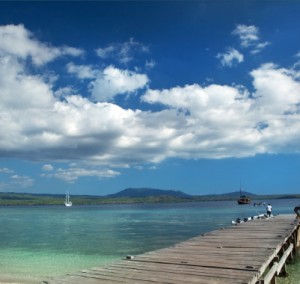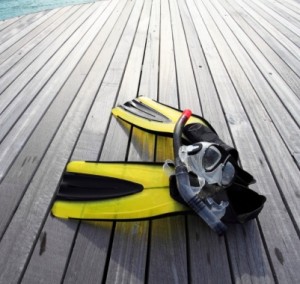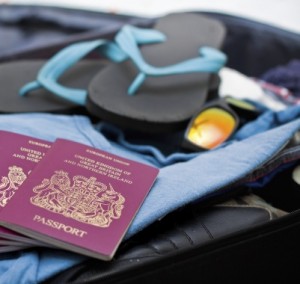Getting Here
Update as go 27th August 2024; Entry Regulation into Indonesia
Current Situation
Following the World Health Organization’s (WHO) declaration of Monkeypox as a Public Health Emergency of International Concern on August 14, 2024, the Indonesian Ministry of Health has implemented measures to prevent the spread of Monkeypox within the country.
The Implementation
Effective immediately, all travelers entering Indonesia are required to complete the SATUSEHAT Health Pass (SSHP) before their arrival.
About the SSHP Form
The SSHP form includes several questions designed to assess the risk of Monkeypox exposure. It must be filled out on the day of departure from the airport and presented to airport staff upon arrival in Indonesia during the immigration process.
Assistance with the Form
If travelers encounter any issues while completing the SSHP electronic self-declaration form, they should seek assistance from the Health Quarantine Center at the arrival airport.
We kindly request your cooperation in informing all travelers bound for Indonesia about this new entry requirement.
We are committed to ensuring the safety of our travelers and will continue to monitor the situation closely, providing updates as necessary.
https://sshp.kemkes.go.id
Whether cruising to Komodo or Flores Islands, Ombak Biru’s trip starts and finishes in different ports, Indonesia. Generally, our guests enter and leave Indonesia through Ngurah Rai International Airport which has excellent connections to the major cities around the world.
Major airlines currently serving Ngurah Rai International Airport, Bali includes Airasia, Cathay Pacific, China Airlines, China Eastern Airlines, Garuda Indonesia, Jetstar Airways, Malaysian Airlines, Singapore Airlines, Korean Air, Thai Airways, KLM and many more.
Arrival/Boarding/Departure:
Reaching the Ombak Biru will involve a round trip do mestic flight from Bali to Komodo Airport near the city of Labuan Bajo (LBJ) on Flores Island in the East Nusa Tenggara province in Indonesia. The Ombak Biru is scheduled to depart at 1:00 pm. Guests should arrange to take one of the two available morning flights.
mestic flight from Bali to Komodo Airport near the city of Labuan Bajo (LBJ) on Flores Island in the East Nusa Tenggara province in Indonesia. The Ombak Biru is scheduled to depart at 1:00 pm. Guests should arrange to take one of the two available morning flights.
Once you have claimed your luggage in Labuan Bajo Airport, please look for an agent holding a Ombak Biru sign or a sign with your name on it. A transfer company has been hired to meet and greet our guests who have arranged this transfer in advance.
The Ombak Biru aims to return to port on the evening prior to disembarkation. Final disembarkation will occur between 7:00 am –11:00 am at the end of the charter. Guests will be transported to the Labuan Bajo airport for a domestic flight back to Bali.
Taxes & Fees:
The Forgotten Islands Park/ Port Fee: $270 (paid onboard).
Komodo National Park/Port Fee: $220-$270 (paid onboard).
Fuel Surcharge: $150-$220
Note: Credit card payments on board the vessel incur 3% service charge.
Rupiah (IDR) is the official currency. It is required for all guests to have some local currency as departure taxes and overweight baggage charges MUST be paid in local currency. Take note that most smaller airlines only allows zero to 15kgs check in baggage, therefore it is an expected fee for divers with full gears.
Transfers:
Land Transfers included (2 transfers)
Transfer from Airport to Ombak Biru
Transfer from Ombak Biru to Airport
Local Information
The official currency is Indonesia Rupiah (IDR)
US Dollar: 1.00 USD = 15,400.00 IDR
What To Bring
Our embarkation island of Labuan Bajo ( for Komodo Itinerary) has seen huge development in recent years and there is a huge variety of shops and department stores to get pretty much whatever you need. Contact our office here if you need to know about something specific.

Below is a list that will help you make your trip more comfortable:
- A 5mm wetsuit is highly recommended to keep snug during a dive- with a minimum of 3mm advisable. A dive hood would keep toasty.
- A sweatshirt to keep warm after a night dive.
- A photocopy of your passport in case of emergency – and make sure you have atleast 6 months to run on it and a minimum of 2 full blank pages.
- Clean, new currency – money changers in Bali normally gives a better rate for it.
- Insect repellent for land excursions and sun screen for sunbathing on deck.
- Running shoes or hiking boots for land excursions. Coerce sandals is possible too.
- And a good book for those relaxing moments – there are plenty on board if you run out.
Travel visas
Indonesia has a VOA (Visa On Arrival) policy that came into effect in August 2004. Visitors have to pay a fee of $31 to immigration officials at the airport, this entitles foreign nationals from 65 countries to a maximum 30 day stay in the country.
Alternatively it can be pre-purchased from the Indonesian embassy or consulate in your country, for a slightly higher fee. We recommend purchase at the point of entry into Indonesia.
Effective from June 10, 2015, US Citizen and foreign nationals of 45 countries and territories are eligible for Tourist Visa Exemption.
This type of visa is granted for 30 days, non-extendable and cannot be converted into another type of visa (valid for tourism purpose only).
The visa exemption can only be applied at certain immigration checkpoints, as follows:
Soekarno-Hatta International Airport, Jakarta
Ngurah Rai International Airport, Bali
Kualanamu International Airport, Medan
Juanda International Airport, Surabaya
Hang Nadim International Airport, Batam
Sri Bintan Pura Seaport, Tanjung Pinang
Batam Center Seaport, Batam
Sekupang Seaport, Batam
Tanjung Uban Seaport, Tanjung Uban
The complete list of visa-free countries and territories are, as follows:
As of 2024, regular passport holders from 10 countries visiting Indonesia for tourism purposes including Brunei, Cambodia, Timor-Leste, Laos, Malaysia, Myanmar, Philippines, Singapore and Thailand Do Not require a visa and will be granted permission for short-term stay on arrival.
It is also worth remembering that exit tax is no longer payable on departure and that passport must be valid for a minimum of 6 months and at least 2 full blank pages in the passport.
RECENT UPDATES
BALI
Bali’s natural beauty and culture are invaluable treasures. It is therefore essential to preserve them, ensuring their existence for the future generations of Bali. To safeguard Bali’s pristine nature and rich culture, Governor Bali Wayan Koster has issued local regulations and gubernatorial decrees. These regulations stipulate a mandatory contribution of IDR 150,000 for foreign tourists (foreign visitors).
This contribution is a one-time payment during your stay in Bali, before leaving Indonesia. The process is quite straightforward, as this payment is made through electronic payment methods, completely cashless. So, how does the payment process work?
Foreign tourists access the Love Bali web-based or mobile system to provide their information and make the contribution payment.
Tourists can choose their preferred payment method, such as bank transfer, virtual account, or QRIS.
Once the transaction is successful, the Love Bali system will provide a “paid notification” and a digital payment receipt as proof of payment to the tourists.
If tourists do not use the Love Bali system for payment, they must make a non-cash payment at the counters at the I Gusti Ngurah Rai International Airport and the Tanjung Benoa Bali Port. Here’s the procedure:
Tourists visit the counters provided by BRI.
Tourists make the payment using credit/debit cards or electronic data capture (EDC) devices.
Upon a successful transaction, tourists will receive a printout as proof of payment and/or a digital payment receipt.
The Bali Provincial Government recommends making the payment before departing for Bali to streamline the service.
But what is the purpose of this IDR 150,000 contribution? For tourists, this contribution is to support the Bali Provincial Government’s efforts to:
Preserve and promote Balinese culture, including customs, traditions, arts and culture, and local wisdom, to maintain Bali’s spiritual essence.
Protect Bali’s natural environment, ensuring it remains clean, beautiful, and sustainable.
Manage Bali’s culture-based tourism, focusing on quality and dignity.
Maintain cleanliness, orderliness, comfort, and safety for tourists during their stay in Bali.
Improve comprehensive, integrated, and up-to-date tourism information services for Balinese culture.
Provide disaster management services.
Develop quality public transportation infrastructure and facilities.

